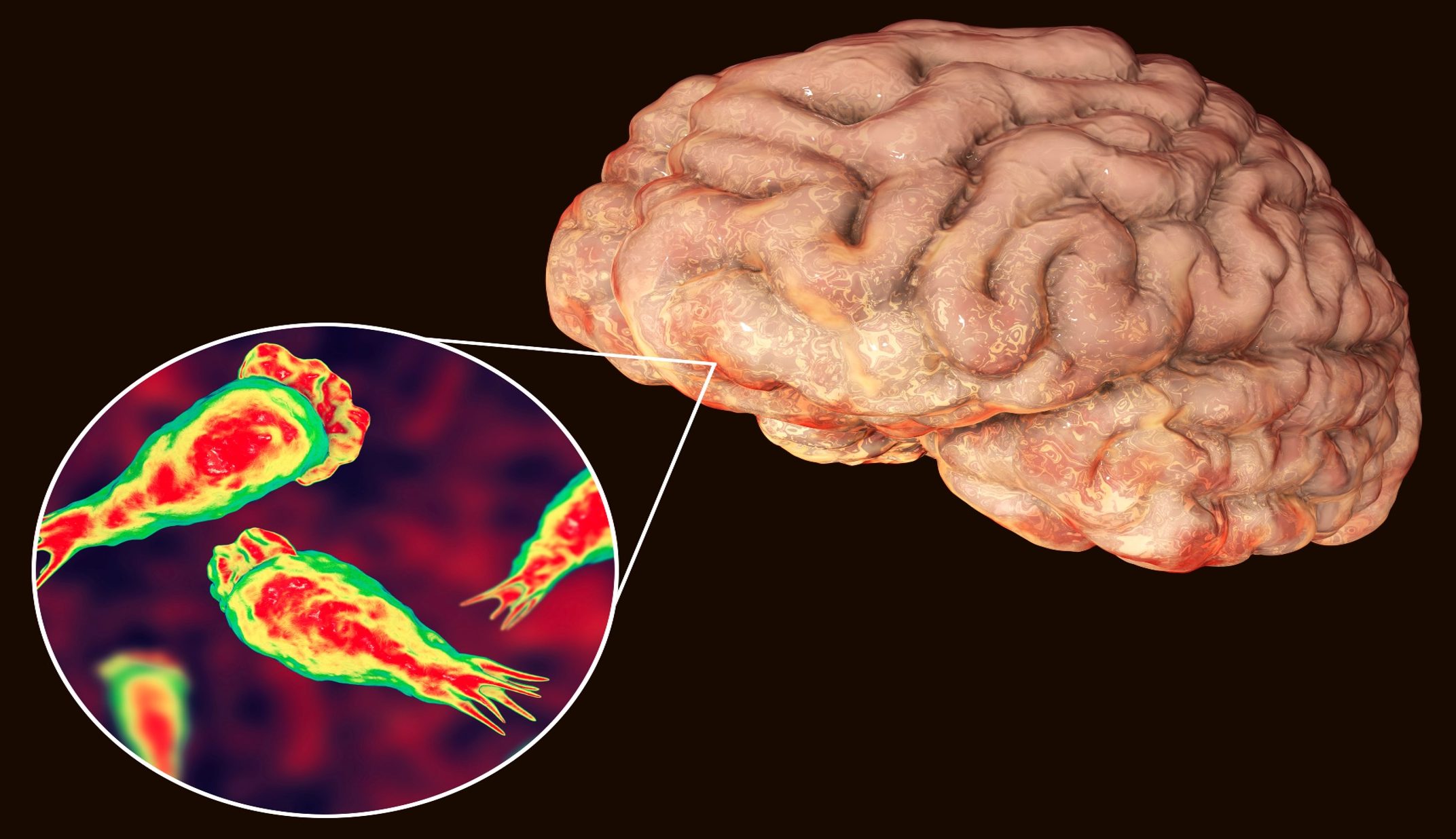Kozhikode, Kerala: In a deeply concerning development, two more people, including a three-month-old infant, have died due to amoebic meningoencephalitis, a rare and often fatal brain infection caused by a waterborne parasite. The deaths were confirmed by health officials at Kozhikode Medical College Hospital on Monday.
With these two fatalities, the death toll in Kerala due to the infection has risen to three in August alone.
The Victims
The latest victims include a three-month-old baby boy from Omassery in Kozhikode district. He had been under treatment for nearly a month before his condition deteriorated, leading to his death in the ICU on Sunday.
The second victim, Ramla (52) from Kappil in Malappuram district, developed symptoms in early July. She was initially treated at a private hospital before being shifted to Kozhikode Medical College as her condition worsened. She did not survive.
Earlier on August 14, a nine-year-old girl from Thamarassery had died from the same infection.
What Is Amoebic Meningoencephalitis?
Amoebic meningoencephalitis is caused by a free-living amoeba called Naegleria fowleri, often referred to as the “brain-eating amoeba.” It enters the human body when contaminated water enters the nose, usually while swimming or bathing. From there, it travels to the brain, causing severe inflammation and destruction of brain tissue.
Symptoms
Symptoms generally appear within 1–12 days after exposure and may include:
-
High fever
-
Headache
-
Nausea and vomiting
-
Stiff neck
-
Seizures
-
Confusion or hallucinations
-
Loss of balance
-
Coma
The infection progresses rapidly and is often fatal, with a very high mortality rate.
Precautions and Prevention
There is no vaccine for the infection. However, it can be prevented through the following measures:
-
Avoid swimming or bathing in untreated or stagnant water
-
Keep your head above water in ponds, lakes, or unchlorinated pools
-
Use nose clips or avoid water-related activities during outbreaks
-
Ensure proper chlorination of water tanks and wells


